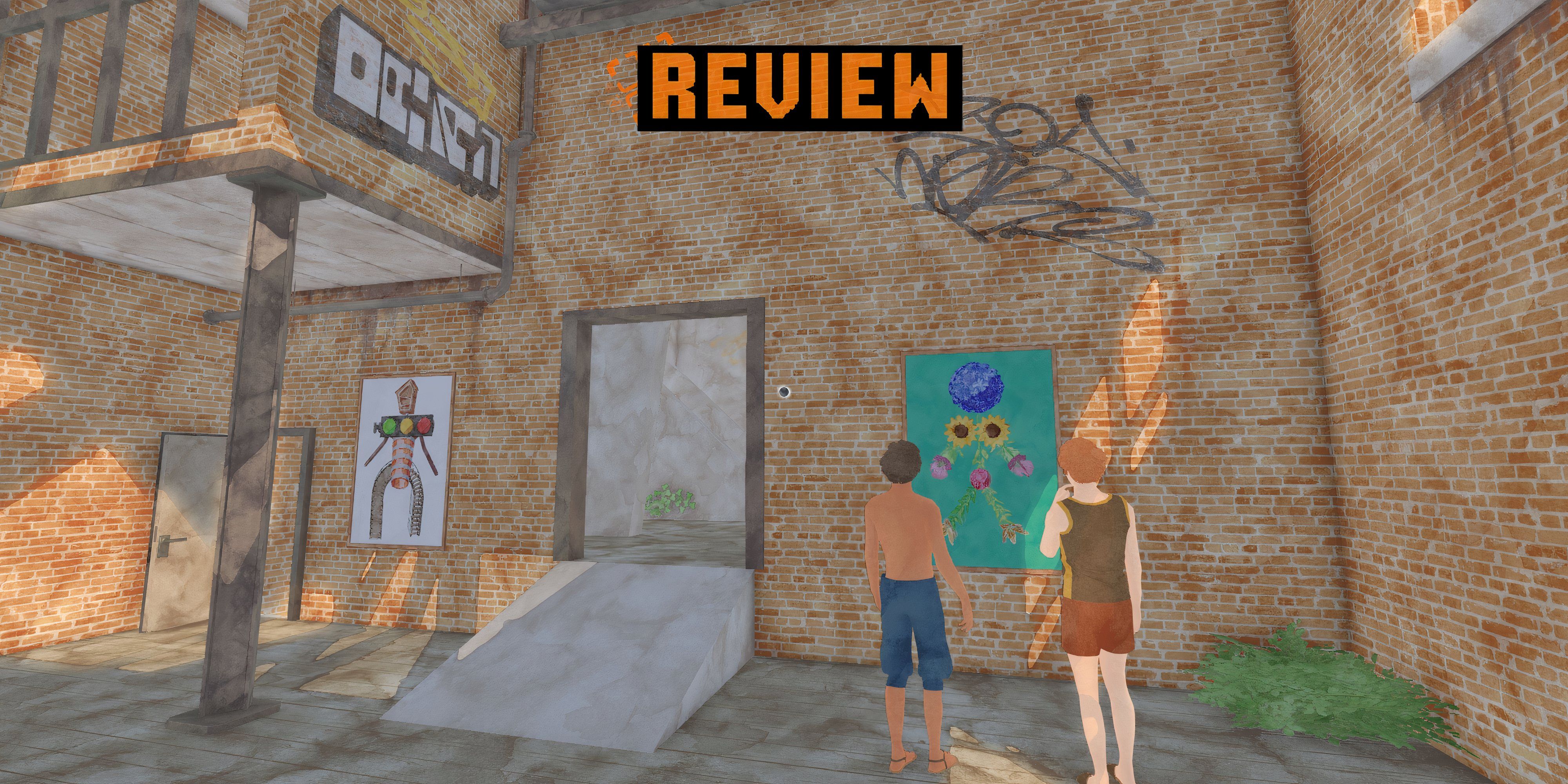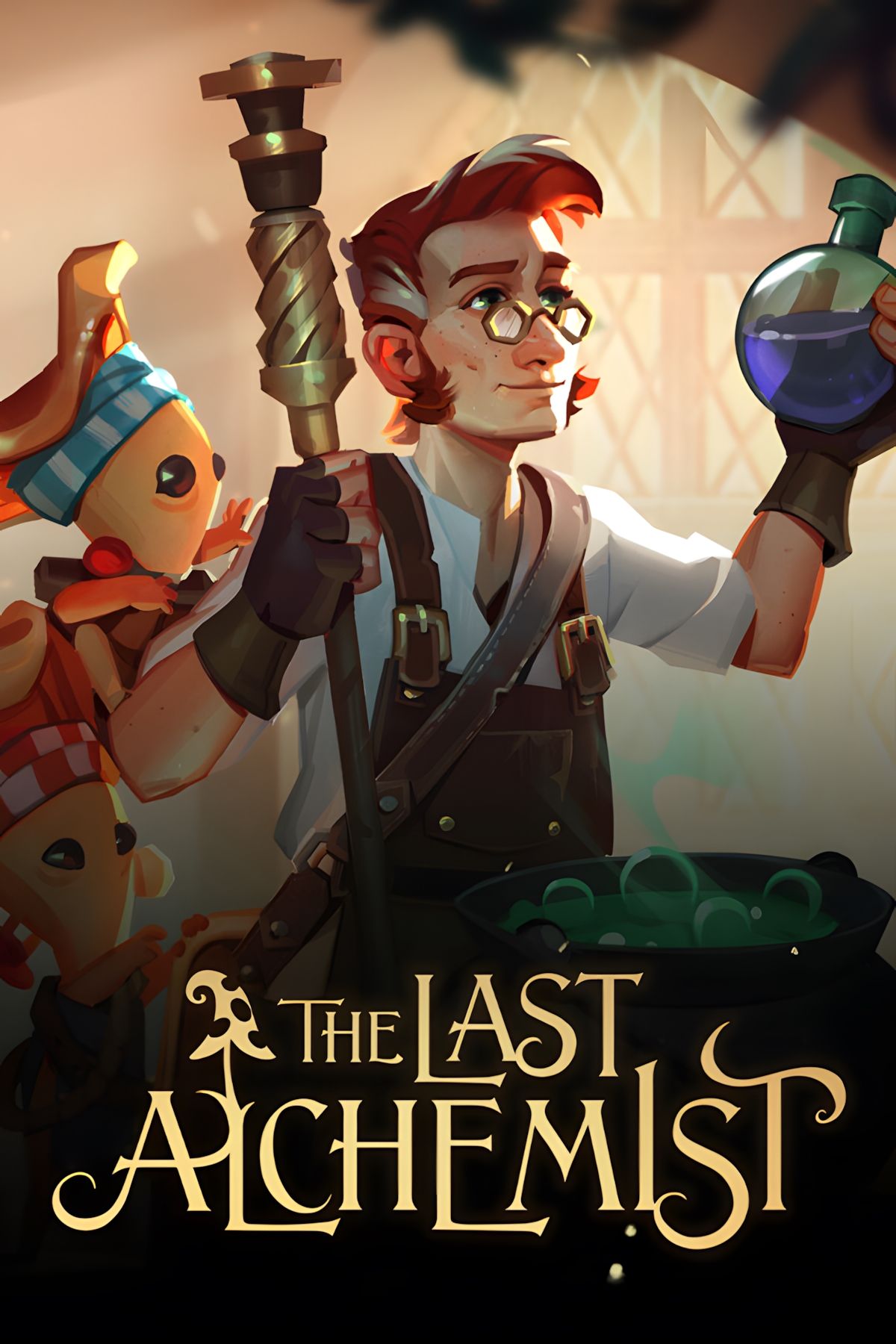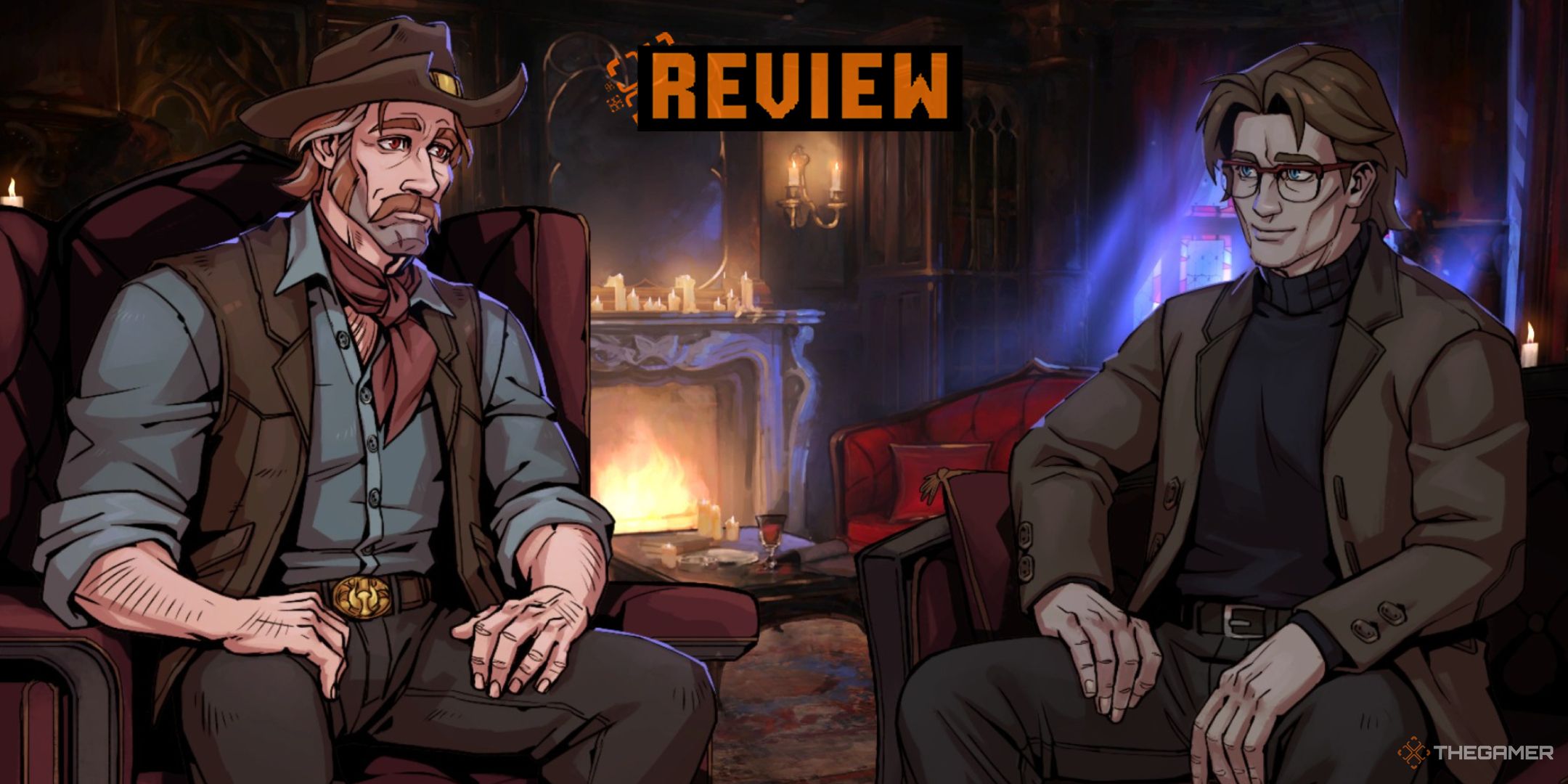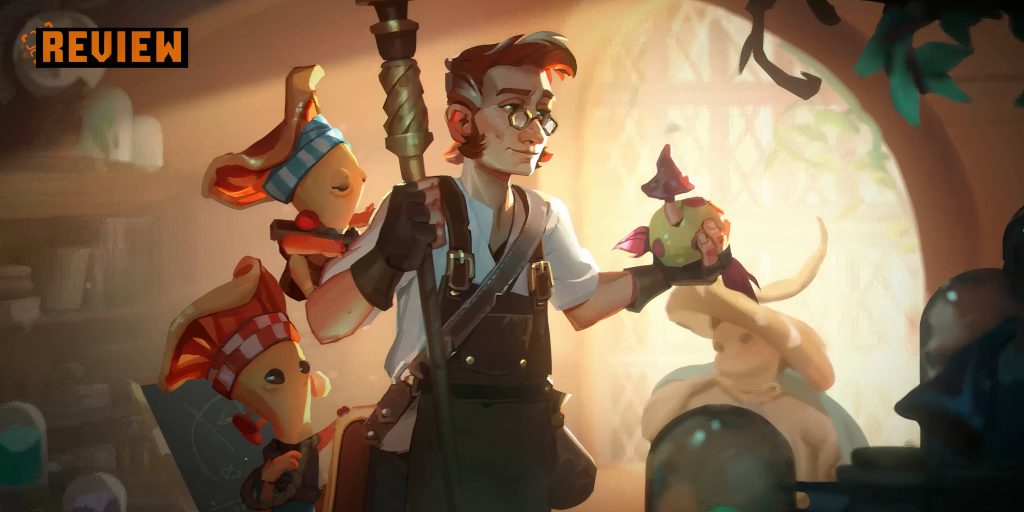Strong points
- The Last Alchemist offers a warm intellectual challenge featuring adorable mushrooms known as Agari.
- Experiment with resource management and environmental harmony to find a cure for your illness.
- No previous experience in alchemy is required.
I was never very good at math and science. The only reason I passed my high school chemistry tests was because of the countless hours I spent in Skyrim crafting steel ingots and experimenting with alchemy (I don't understand it either, but it worked). The pleasant allure of gathering fungal resources and crafting innovative machines in search of the cure for a magical disease in The Last Alchemist drew me in, but the heavy reliance on formulas almost completely lost me.
When I took on the role of an elderly, terminally ill alchemist in this cozy, top-down adventure, à la My Time At Sandrock, I expected to be greeted with recipes and auto-complete instructions that did most of the heavy lifting so players could focus on feeling like an alchemist. Little did I know that the game would push me to think critically and seek out ingredients and extracts to aid the mushroom people known as the Agari who inhabit the game’s central observatory. Having been primed by the mysteries hidden deep within cozy games like Fae Farm and Stardew Valley, I felt ready to tackle The Last Alchemist and the scientific secrets it held.

Related
Summer Review – A Picturesque Work
Summer lets you create masterpieces, but isn't really one in itself.
My arrogance crumbled after the tutorial. Age, it turned out, doesn’t always equal wisdom, and after blowing up my late master’s machinations and workshop, my last titular alchemist had to start over. This sent me all over the place, dragging myself around with my prosthetic leg and staff. While most games have a stamina bar, The Last Alchemist makes the familiar mechanic more vital than ever. Age gnaws at your alchemist’s bones, and taking a break from running around for hours is necessary to restore your energy. These moments of respite offer time to reflect.
There is much to do as the last alchemist, and completing the late master's work will take time. He has left detailed notes on the notice board for you, but it is up to you to find and craft everything yourself. Insight is the currency of choice, which is used to build more machinations, so you can sell excess materials or failed concoctions to the Agari for them to study. In exchange, they will help you craft new tools and give you advice on the area surrounding the observatory since the alchemist has been away from home for a while.
You will live a peaceful existence in the Alps with the Agari since the game does not feature combat. Instead, your problems are intellectual and alchemical. Finding the right resources and creating solutions that can destroy the barriers will occupy most of your day, but you will learn more about the world and reminisce about your youth as you explore the ruins around the observatory. There are secrets to discover, but only if you can prove yourself worthy of the title of alchemist.
As if blowing the observatory to smithereens wasn't enough, the Agari accuse you of wanting to eat them all after you ruin their carefully constructed home within the observatory. However, by working together and helping them rebuild their fungal community, even the most nervous fungus ended up helping me find a cure.
Some Agari were just as creative and innovative as the alchemist, quickly making us friends in a world alarmingly overrun with fungi.
In my haste to find a cure, I passed out in the workshop and woke up with only a quarter of my usual stamina the next day. This meant I spent most of my morning meditating to get my stamina back so I could actually work. I lost a lot of time because I was too stubborn to go to sleep. It's a great idea that makes time a more risky/rewarded resource, but it conflicts with a core element of the cozy genre that should have been rethought long ago.
In the tradition of card games, saving your game happens at the end of each day. It's a long-outdated feature of the genre that I've found frustrating for a long time. It encourages progression and planning, but having to decide whether to restart your day the next time you play or end it early just to save your progress feels unfair. However, as an aging alchemist, it reflects how his illness has affected him and how you have to plan your breaks in the game accordingly to recover stamina.
Another issue is workshop storage, or rather the lack thereof for a seasoned and isolated alchemist. With the number of accidental concoctions I made, I began hoarding materials to ensure there was enough in my workshop, and even started throwing them on the floor when I ran out of space. It’s not ideal, but it works. However, it does highlight the idea that you’re not supposed to take more than you can handle. It feels more like a little nod to living in harmony with the environment than an oversight – but for a player, it makes the game worse, and that’s never what you want.
After littering the environment with sticks and mushrooms, I learned that dropped items don't disappear overnight, so that's something to keep in mind.
Without a minimap or compass, I found myself in a bind more often than I'd like to admit. You're free to explore as you please, but to find specific resources, you have to locate areas on the map and travel there and back before nightfall. Without these navigational tools, you're forced to observe environments and study them like a true alchemist. Even if I spend all day trying to do one thing, I never come away unsatisfied, which is a testament to how the game makes you care about your concoctions rather than treating them like a checklist to complete.
At the end of each day, I relax in the observatory and reflect on everything I've done. Of course, the Agari are still afraid that I'll eat them, but I'm working on it. My lack of experience in science (STEM) subjects hasn't been as big of a hindrance as I'd feared, allowing me to succeed through trial and error (or if I bothered to read the notes provided). Once I managed to finish building the microscope, researching all possible outcomes became a priority and made my job much easier.
Despite my frustrations with math and science, the game is carefully designed to encourage experimentation and exploration. A wealth of resources and notes in the encyclopedia help you find the cure for your illness while working alongside the cutest mushrooms you've ever seen.

The Last Alchemist
Tested on PC
- Released
- July 12, 2024
- Developer(s)
- vile monarch
- The gameplay is smooth and easy to understand
- Encourages exploration and experimentation
- Adorable mushrooms populate the world
- Navigating the world and finding NPCs can be tricky without quest markers or a mini-map.
- Not enough storage space in your inventory
A review code was provided by the publisher.

Following
Vampire Therapist Review – A Visual Novel That Did Its Homework
The only thing more harmful to vampires than sunlight and garlic is unhelpful thought patterns.




